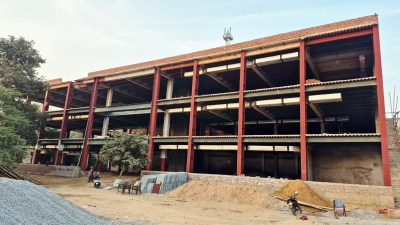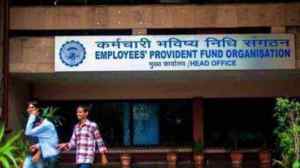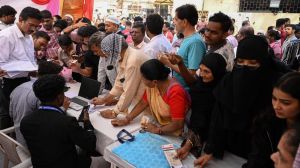Remember Russia
Coping with the hostilities of Pakistan, sustaining the tenuous thaw inrelations with China, anxieties and expectations regarding Clinton'...

Coping with the hostilities of Pakistan, sustaining the tenuous thaw inrelations with China, anxieties and expectations regarding Clinton8217;sforthcoming visit to India, have been the operational focus of our foreignpolicy over the last six months. In the process, the fourth point in thequadrangular terms of reference as far as power equations go, namely Russia,has faded from our attention. But Russia cannot, and should not, beignored.
At the end of a decade after the disintegration of the Soviet Union and theemergence of the Russian Federation, the country is undergoing significantpolitical changes which we should take note of. These developments have tobe assessed in the context of the travails and transformations which theRussia Federation has been undergoing since 1991. Much has happened sinceYeltsin mo-unted a tank in August 1991. Yeltsin8217;s charisma has sustaineddemocracy, but not good and effective governance. Liberation and economicre-structuring has polarised the Russian economy and subjected largesections of Russians to economic pressures. The situation has beencompounded by disjointed autonomies disrupting its industrial andmanufacturing processes. Initial expectations of the Russians about externalinputs from the West have not been met in full measure.
At the political level, there were conflicts between the legislature andexecutive, culminating at one point with the latter undertaking militaryoperations against the Duma in October 1993. There have been frequentchanges of prime ministers and in the Cabinet. Ethno-religious centrifugalmovements in Dagestan and Chechnya pose a danger to the stability andterritorial integrity of the country. The Russians have a profound angstabout losing their importance as an influential nation-state andsuperpower.
A groundswell of nationalism is finding expression amidst the claims ofvarious political parties and factions, particularly that of the CommunistParty. Russia8217;s foreign policy since 1991 has gone through differingorientations from being Euro-centric and pro-American to asserting itsposition as a Eurasian power. There have been resentments about theexpansion of NATO and related arrangements with the resulting focus onJapan, and China and to a lesser extent on Southeast Asia. The Russian focuson these two important Asian neighbours is subject to historical threatperceptions about both countries, which are shared by the emerginggeneration of Russian politicians.
It is in this context that elections to the Du-ma took place on December 19,with Vlad-imir Putin, the present prime minister, emerging as an importantfigure in Russian politics. On all counts, the new Russian Duma is dominatedby members of the Centre-right parties, whose economic policies would bereformist and whose defence and foreign policy orientations would benationally assertive. Though the Communist Party has gained the largestnumber of seats in the lower house of the Parliament, Putin8217;s Unity Partyhas the second largest number of seats.
The seats acquired by Grigory Yavilinsky8217;s Yabloko Party, the union ofRightist forces led by Anatoly Chubais, and the Fatherland Party of formerprime minister, Primakov, and the major of Moscow, Yuri Luzhkov, couldresult in tempering the influence of the Russian Communist Party in theDuma. Of particular significance is the extreme nationalist group led byVladimir Zhirinovsky emerging with greatly diminished membership in theRussian Federation in the presidential elections to be held this year. Theconclusion to be drawn is that the Russian people, despite all the politicaluncertainties which they have faced, have decided to sustain the democraticexperiment in that country.
One has indulged in detailing developments in Russian because prosp-ects ofIndo-Russian relations will be gauged by these developments. In-do-Russianrelations do not have the same substance or positive political intensitieswhich characterised India8217;s relations with the former Soviet Union. As longas Gaidar was Prime Minister and Kozyrev was foreign minister in early1990s, India stood marginalised in Russian foreign policy. Prima-kov and hissuccessors re-focused att- ention on south Asia, particularly India.
Yeltsin8217;s visit to New Delhi in January 1993, began this process which iscontinuing on an even keel. However, over the last three years or so,Indo-Russian relations seem to be in a drift, although it is a positivedrift.
What seems lacking is a certain dynamism which is called for, given theevolving strategic and security concerns in the region. There have been nohigh level political visits between India and the Russian Federation sincethe visits of Chernomyrdin and Primakov. Jaswant Singh and Brajesh Mishrahave visited Moscow to discuss the issues-specific or event-specificramifications of India8217;s nuclear and missile weaponisation. The requirementis to initiate processes of a broader strategic understanding andrelationship with the Russian Federation. It would be pertinent to point outthat Russia has shown a greater understanding of India8217;s security concerns,whatever its formal position on non-proliferation issues.
The Russian government is also strongly opposed to cross-border terrorismand Russia remains a major trading partner and source of defence supplies.Links with Russia would be a positive factor in facilitating India8217;srelations with countries of Central Asia and China. India8217;s foreign policyshould be guided by these considerations.
Russia itself is likely to break through the illusions of acquiring a purelywestern European or trans-Atlantic identity because Western attitudestowards the Ru-ssian Federation remain sceptical. Ri-chard Pipes, aprofessor of history at Harvard, articulates this scepticism succinctly whenhe says: 8220;The political and economic culture of a nation cannot beradically changed by Government decrees. Values and attitudes inculcatedover centuries are so deeply embedded that it takes a protracted newexperience to alter them significantly.8221;
It would be logical to presume that the wielders of power in Russia would beaware of this kind of assessment and react to it. This reaction, in thebroadest political sense, would be to revert back to Russia8217;s Eurasianidentity in which lies the stre-ngth and potential of the RussianFederation. A reaction which cannot but take note of India8217;s importance inpolitico-strategic terms. While our more immediate concerns about Pakistan,US and China, pre-occupy us, we would do well not to ignore the tangible andlong-term importance of our relations with Russia.
- 01
- 02
- 03
- 04
- 05































